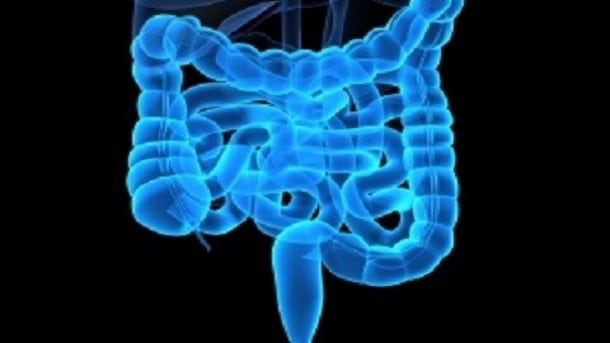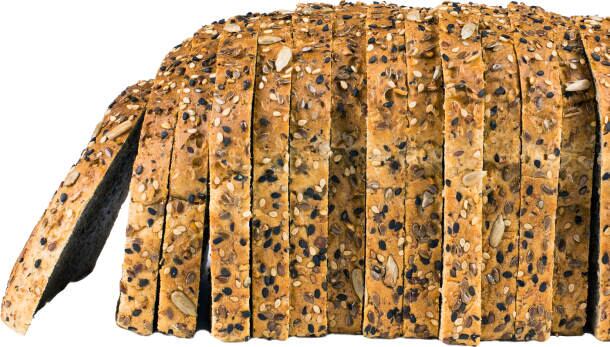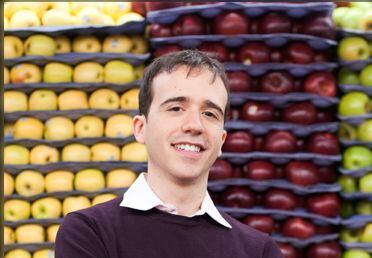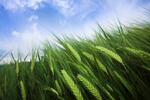While there is something alluring about the idea of going back to a simpler time when we only ate food we could hunt or gather, it doesn’t necessarily follow that this represents an ‘optimal’ healthy eating pattern, observes Las Vegas-based RD Andy Bellatti, who has recently spent time delving into the claims made by some Paleo enthusiasts.
For a start, he notes, our ancestors died young, so we don’t know what shape they would have been in had they made it into ripe old age. Moreover, we have no way of knowing if they were deficient in any nutrients. Indeed, given the local and seasonal nature of their diets, deficiencies were quite likely.
What is the Paleo Diet?
Definitions vary, but most advocates of the Paleo diet think the dietary rot set in once humans stopped hunting and gathering and started to grow crops and raise animals for food. So grains, legumes (soybeans, peanuts, chickpeas), and dairy are typically off limits (although some Paleo fans say grass-fed dairy is OK).
Flawed logic
Meanwhile, the argument that we should avoid foods today because our Paleo ancestors didn't eat them, is bizarre, he adds.
By this logic, he argues, people in Norway shouldn’t eat bananas, because they have never grown there, and Norwegians haven’t ‘adapted’ to digest them, which is clearly absurd: “Olive oil is now customarily eaten around the world, but it was originally only available to a very small part of the population. Same with avocados, blueberries, and raspberries.”
(Researchers also point out that pinning down what our 'Paleo' predecessors actually ate with any certainty is pretty tough as their diet would have varied according to where they were and what was available at the time, and let's not forget that the Paleolithic era covers a huge time period: 2.6 million+ years ago, to around 10-12,000 years ago.)

(A study published last year in the journal Nature revealed that a gene mutation controlling an enzyme enabling humans to digest milk became widespread in under 3,000 years – a blink of an eye in evolutionary terms – while people in areas with starch as a major part of the diet evolved to have multiple copies of a gene that helps them digest it better.)
As for carbohydrates, our bodies are “perfectly equipped to digest them”,' says Bellatti, who also points to research showing that as new foods are introduced to the food supply (eg. dairy, wheat), humans have adapted to be able to digest them remarkably rapidly.
Indeed, a study published last year in the journal Nature revealed that a gene mutation controlling an enzyme enabling humans to digest milk became widespread in under 3,000 years – a blink of an eye in evolutionary terms – while people in areas with starch as a major part of the diet evolved to have multiple copies of a gene that helps them digest it better.
In other words, the notion that our bodies have simply not adapted to digest food crops such as wheat, soy or peanuts, or milk from animals we've raised, doesn't really wash. It turns out our bodies are so adaptable that we've seen wholesale changes within hundreds of generations.
Blaming our problems on ‘grains and soy’ is too simplistic
Meanwhile, the argument put forward by some Paleo fans that grains and soy - relatively recent additions to the human diet - are bad for us because they “aren’t edible in nature without processing”, defies logic, says Bellatti.
“So what if they aren’t 'edible in nature'? Pure sugarcane is edible in nature. Does that mean it is good for us?"
The devil is in the detail, he adds: “Blaming our problems on grains and soy is too simplistic. A tempeh and brown rice stir-fry is not akin to eating a 1,400 calorie bowl of pasta along with six breadsticks at the Olive Garden.”
Grains and health

A 2012 meta-analysis of 45 prospective cohort studies and 21 randomized-controlled trials in the Journal of Nutrition found that people consuming more whole grains were less likely to develop heart disease and type two diabetes and other conditions associated with systemic inflammation, while there was also an inverse relationship between whole grain intake and weight gain.
As for bread – which is public enemy #1 with many in the Paleo crowd – context is crucial, stresses Bellatti. “Eating two slices of white bread by themselves is, from a glycemic standpoint, very different from having a sandwich filled with tofu, avocado, and hummus. The presence of additional protein, fiber, and fat in that sandwich greatly decrease the bread’s effect on blood sugar levels.”

And while whole grain bread is a better choice, he adds, “Keep in mind that white bread was the ‘standard’ bread sixty or so years ago, when diabetes and obesity rates were much, much lower.
“The problem isn’t refined flour itself as it is the amount and frequency in which it is eaten. Today’s health problems are mainly attributed to two things: people are consuming too many calories, and these calories mostly come from nutritionally empty, overly refined foods.”
There are some positives about the Paleo diet
As for concerns about allergies and autoimmune disorders, yes, the latter are on the rise, he says, but we are just as likely to have an allergic response to foods consumed in Paleolithic times (fish, treenuts, insects) as those that entered the human diet more recently, so why single out grains in this regard?
Insects, for example, were a big food source for our ancestors in many parts of the world, but they frequently generate an allergic response, such that people with shellfish allergies are advised to avoid them. It's also worth pointing out that many grains (rice, corn, oats -if certified GF, quinoa, sorghum, teff, millet, amaranth, buckwheat) do not contain gluten, the protein in wheat, barley and spelt that a tiny percentage of people struggle to digest.
As for those advocating ‘zero carb’ iterations of Paleo diets, adds Bellatti: “One of the main reasons for getting a sufficient amount of carbohydrate in your diet is for ‘protein sparing’— that is, to allow protein to do what it needs to do.
“Trust me, beans and whole grains are not behind rising obesity, diabetes, and heart disease rates. Today’s health problems can be easily traced back to excesses in calories, added sugars… omega-6 fatty acids, saturated fats in animal products, trans fat, and sodium.”
But on positive note, he says: “The one thing I like about the Paleo diet is that it advocates one very important point that I agree with: eat foods that are as close to nature as possible. Instead of drinking apple juice, eat an apple; instead of munching on onion rings, have onion slices in a salad.
"The absence of highly-processed junk food in the Paleo diet makes it a step up from the Standard American Diet. And, certainly dairy products are not necessary for health. However, it's a shame that many are losing out on the healthful properties of whole grains (think oats, not sugary cereals), beans, and legumes."
When did we start eating grains?

Speaking at the 2015 Whole Grains Summit in Portland, Oregon, Dr Fred Brouns from Masstricht University challenged the notion that we’ve only been eating grains for 10,000 years and our bodies have not adapted to them, especially those containing gluten.
In fact, evidence suggests that Neanderthals were eating wheat, rye and barley 45,000 years ago, while there is evidence of large-scale processing of cereals in Israel 23,000 years ago, he pointed out.
But even if widespread consumption of grains only began a few thousand years ago, our bodies have evolved mechanisms to digest and utilize it pretty efficiently, he said.
The scientific consensus is that grains, notably whole grains, can play a key part in a healthy diet
Our second RD – Chicago-based Sylvia Melendez-Klinger – is a scientific advisory board member at the Grain Foods Foundation.
But before readers bring out the ‘well she would say that wouldn’t she’ argument, she says, “Let’s be clear: The scientific consensus is that grains, notably whole grains, play a key role in a healthy diet, and my relationship with the Grain Foods Foundation doesn’t change that.”
Intact whole grains also provide a steady, slow release of glucose, and can also play a beneficial role in weight management, she adds, noting that a recent TV ad for Weight Watchers in which Oprah Winfrey declares her love for bread reinforces this point.
Fewer than 1% of people have celiac disease (they can’t handle gluten), while the literature suggests the percentage with NCGS/non-celiac gluten sensitivity ranges from 0.5% to 6% (although we can’t be sure because there are no validated biomarkers or diagnostic tests).
The challenge facing dietitians is that consumers are far more likely to go to blogs and other “opinion-based” forums – rather than health.gov- for nutritional or weight management advice, while media coverage of celebrity weight loss plans, new diet books or nutritional studies rarely presents them in the context of the overall body of literature, she says.
“What the research consistently shows is that variety is good: grains, dairy, protein, fruits and vegetables. For many people, grains are also a key source of fiber. We just have to keep control of portion sizes in grain foods. Many people love bread, they just have to eat it mindfully.”
Click HERE to read more perspectives on the Paleo diet.
